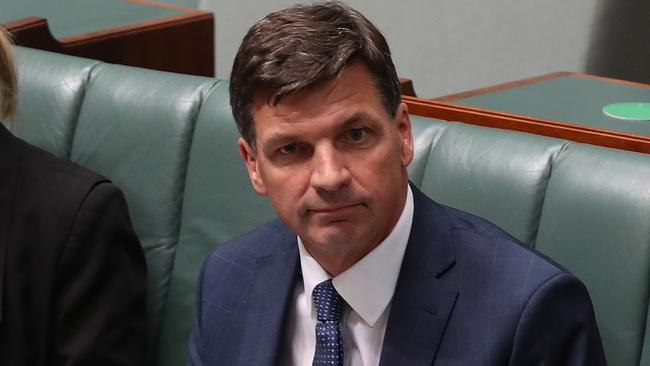Renewable energy surges to record high
The amount of renewable energy installed across Australia hit a new record in 2019.

The amount of renewable energy installed across Australia hit a record in 2019, pushing the share of electricity generated by solar and wind to new highs, Energy Minister Angus Taylor says.
Despite investor concerns over a fall in committed new energy projects in the 2020 financial year, some 6300 megawatts of new renewables capacity was added in 2019, a 24 per cent jump on the previous record set the year prior.
Figures from the Clean Energy Regulator also show power generated from renewables rose by 20 per cent to a record 44 terawatt hours in 2019. It expects the trend to continue with a forecast 26 per cent boost forecast for this year.
Electricity grid emissions are tipped to fall 23 per cent by 2030, with the share of renewable energy rising to more than a third in the early 2020s and 48 per cent by 2030.
Mr Taylor told The Australian the focus must remain on lowering power prices and new investment in renewables, noting measures including the $1bn Grid Reliability Fund, Snowy Hydro investment and work to boost transmission links.
“The key challenge to ensuring power prices continue to come down and continued strong growth in new renewable capacity is to drive down the cost of storage and back-up, including grid upgrades,” Mr Taylor said.
Australia requires at least 30,000MW of solar and wind to replace coal generation by 2040 and 47,000MW should more aggressive pollution cuts be required in response to the climate change crisis. Calculations by the Australian Energy Market Operator in November found just 151MW of new generation is committed in the current financial year, from just two projects. That compares to 4300MW across 46 plants in the 2019 financial year.
Those numbers may be set to change, with the CER stating in December that it expects another 1500MW of projects with power purchase agreements to reach financial close and start construction in the 2020 financial year.
“Over the same period we expect material capacity to reach final investment decision from international developers with access to significant equity,” the CER said in its report.
The Queensland government-owned investment giant QIC warned on Wednesday that congestion woes in Australia’s power grid threaten to increase household electricity bills and derail the nation’s ability to achieve deeper cuts to carbon emissions, following a drop in renewable energy spending.
QIC is among investors and project developers pushing for what it sees as a fairer way of calculating so-called marginal loss factors for transmission on an average basis, smoothing out volatility in the national grid, and paving the way for an accelerating move to renewables from legacy coal plants.
A major investor group including BlackRock, Macquarie and UK developer John Laing said on Wednesday it was disappointed that groups in favour of retaining the status quo had failed to produce any quantitative analysis to support their position.

